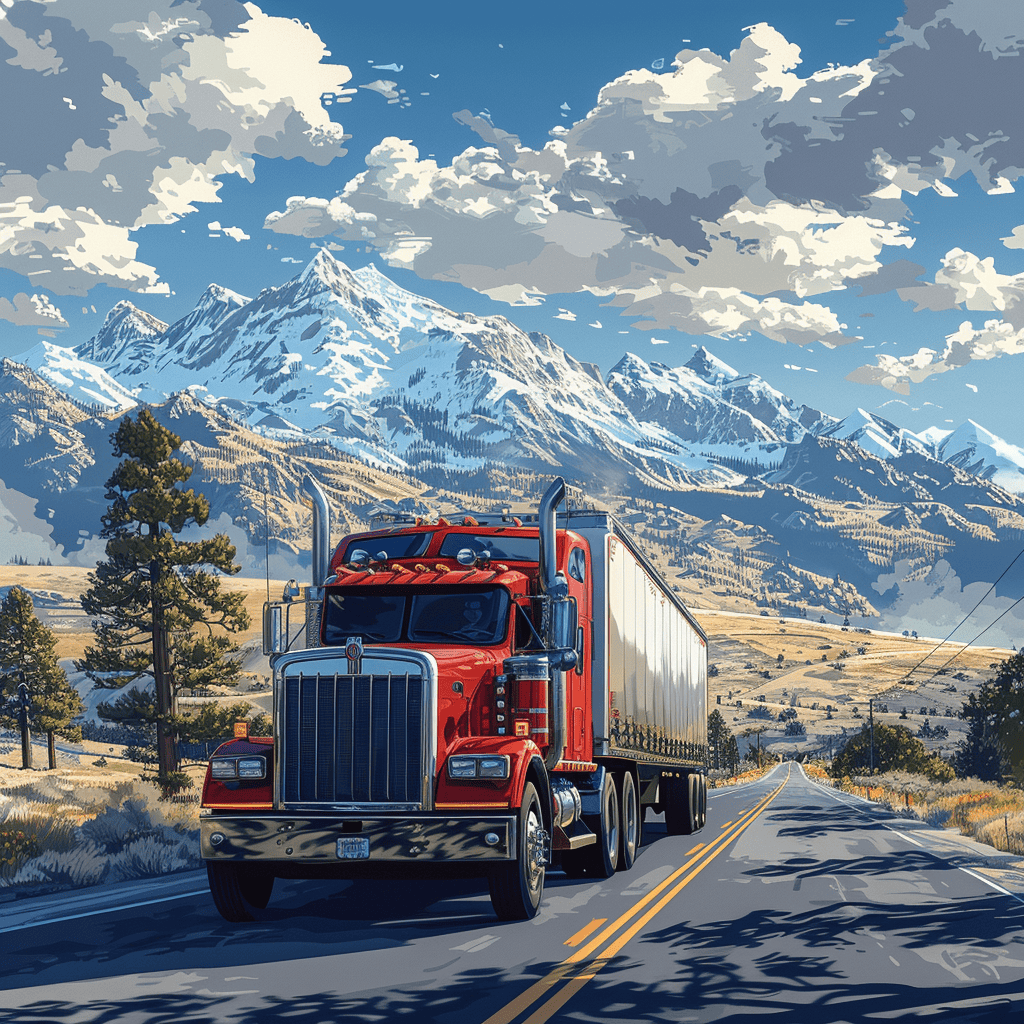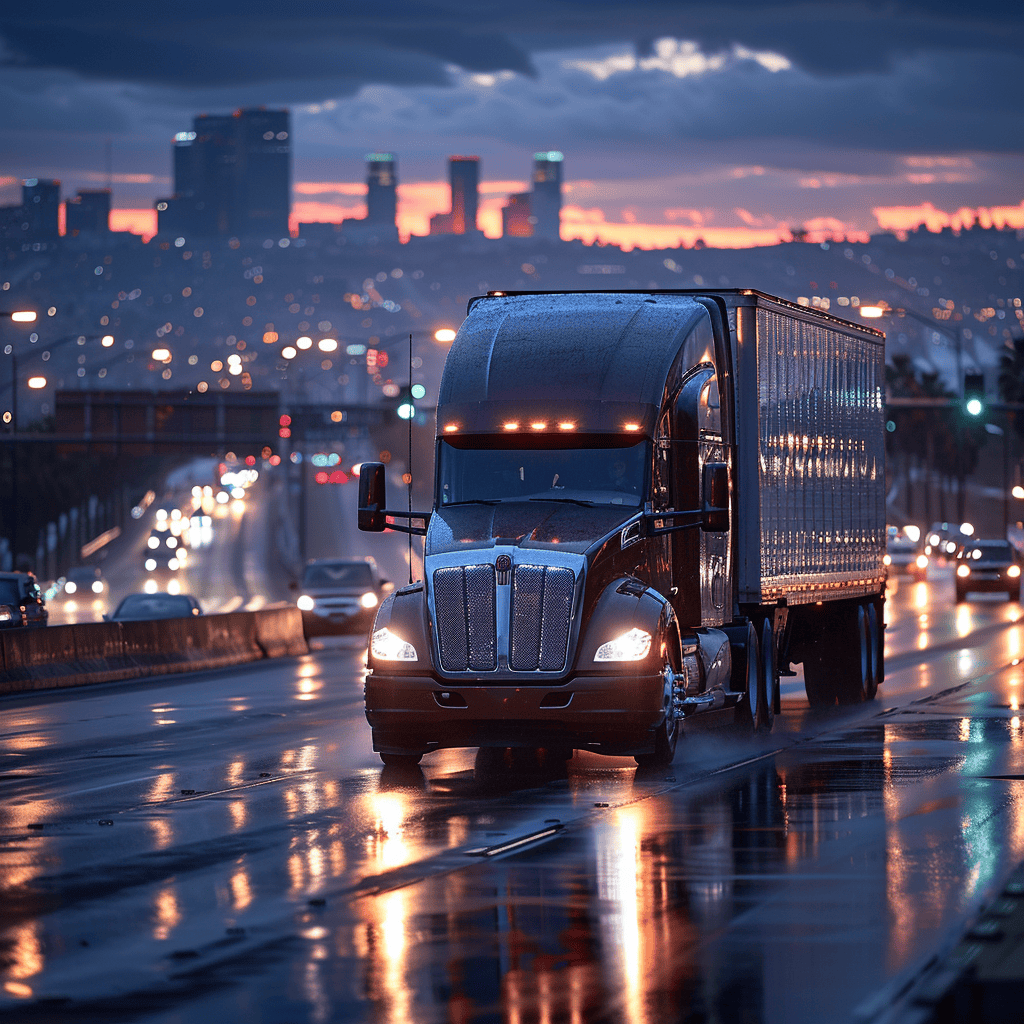Vermont Oversize Permits
Freedom Heavy Haul can offer expedited Pickup and Delivery for any size shipment anywhere in the USA. Contact us today for No Hassle, No Pressure Pricing.
Vermont’s regulations for oversize and overweight permits are essential for the safe and legal transportation of large loads. These permits help maintain road safety and infrastructure integrity by ensuring that oversized and overweight vehicles comply with state guidelines.
Types of Vermont Oversize Permits
Single Trip Permits
Single Trip Permits are necessary for non-divisible loads that exceed statutory weight or dimension limits. These permits are valid for up to ten days and must be secured before entering the state. They are typically issued for one-time movements of large items that cannot be divided without compromising their function or value. The application process involves providing detailed information about the load, including dimensions and weight, as well as the intended route.
Annual Blanket Permits
Annual Blanket Permits cover specific types of loads or vehicles for a year, allowing for multiple trips without the need to apply for individual permits each time. These are particularly useful for businesses that frequently move similar loads, such as construction equipment or agricultural machinery. The blanket permit simplifies the process by providing ongoing authorization for qualifying vehicles and loads.

Special Excess Weight Permits
Special Excess Weight Permits are required for vehicles that exceed the standard weight limits. These permits often require an engineering review to ensure that the vehicle can safely distribute the weight across its axles. This review helps prevent road damage and ensures the load’s safe transportation. Vehicles that qualify for these permits typically carry extremely heavy loads, such as industrial equipment or large construction materials.
Emergency Move Permits
Emergency Move Permits are issued for urgent situations where an oversized load must be transported immediately. These permits are granted under special circumstances, such as moving equipment for disaster relief or urgent infrastructure repairs. The application process for emergency permits is expedited to address the immediate need.
Farm Equipment Dealer Permits
Farm Equipment Dealer Permits are designed for the agricultural sector, allowing dealers to transport farm machinery that exceeds standard size limits. These permits facilitate the movement of large equipment essential for farming operations, ensuring that agricultural productivity is not hindered by transportation restrictions.
Application Process and Costs
How to Apply for Permits
The application process for Vermont oversize permits involves submitting detailed information about the vehicle and load, including dimensions, weight, and the intended route. Applications can be submitted online or through the Vermont Department of Motor Vehicles (DMV). It is crucial to provide accurate information to avoid delays or rejections.

Permit Fees and Associated Costs
The costs for oversize permits in Vermont vary based on the type of permit and the specifics of the load. A single trip permit costs $35, while an over-length permit is $25. Manufactured home oversize permits are significantly higher at $300. Overweight permits range from $800 for loads under 150,000 pounds to $10,000 for loads over 250,000 pounds. Additional costs may include engineering review fees, especially for super loads.
Engineering Review Fees for Super Loads
For loads exceeding 150,000 pounds, an engineering review is required to assess the safety and feasibility of transporting the load. This review ensures that the vehicle can safely distribute the weight and that the load will not damage road infrastructure. Engineering review fees vary, starting at $60 per hour for reviews requiring more than eight hours.
Legal Dimensions and Weight Limits
Maximum Width and Height Limits
In Vermont, the legal width for vehicles is 8 feet 6 inches, while the height limit is 13 feet 6 inches. With an oversize permit, these dimensions can increase, with maximum allowable widths reaching up to 15 feet and heights up to 15 feet.
Maximum Length Limits
The legal length for a combination vehicle is 75 feet, but with an oversize permit, vehicles can be up to 100 feet long. These extended lengths accommodate large loads that cannot be divided, such as long construction materials or oversized machinery.
Axle Weight Limits and Distribution
Axle weight limits are critical for maintaining road safety. In Vermont, the legal axle weight is 20,000 pounds on designated highways and 22,400 pounds on other roads. Tandem axles are limited to 34,000 pounds on designated highways and 36,000 pounds on other roads. Tridem axles must comply with the Federal Bridge Formula, which varies based on axle spacing.
Operating Times and Travel Restrictions
Daylight Operating Hours
Oversize loads in Vermont are generally restricted to daylight hours, with travel permitted from 30 minutes before sunrise to 30 minutes after sunset. This restriction ensures better visibility and safety for both the oversized vehicle and other road users.
Weekend and Holiday Travel Restrictions
Weekend and holiday travel restrictions apply to oversize loads over 10 feet 6 inches wide, 100 feet long, or 108,000 pounds. These loads cannot travel on Saturdays, Sundays, or holidays, and additional restrictions apply on Fridays from July 1 to Labor Day.
Speed and Route Restrictions
Oversize loads must adhere to specific speed limits, typically not exceeding 45 miles per hour on state highways. Route restrictions may also apply, requiring vehicles to follow designated routes to minimize road wear and ensure safety.
Escort Vehicle Requirements
When Escort Vehicles Are Needed
Escort vehicles are mandatory for loads exceeding certain dimensions, such as over 12 feet wide or 80 feet long. These vehicles help manage traffic and ensure the safe passage of the oversize load through intersections, bridges, and other challenging road segments.

Signage and Safety Equipment for Escort Vehicles
Escort vehicles must display “OVERSIZE LOAD” signs, which are at least 6 feet long and 12 inches high with yellow backgrounds and black letters. They also need to be equipped with safety flags, road flares, and CB radios or two-way communication devices to maintain contact with the oversize vehicle.
Communication and Coordination Requirements
Effective communication between the escort vehicle and the oversize load is crucial. Escort vehicles must remain in constant contact with the load via CB radios or other communication devices. This coordination helps navigate complex routes and ensures that the escort vehicle can alert the driver of any upcoming obstacles or hazards.
Special Considerations for Overweight Loads
Permit Requirements for Overweight Loads
Overweight loads require special permits to ensure that the vehicle’s weight is properly distributed across its axles. These permits help prevent road damage and ensure the safe transportation of heavy loads. The application process for these permits involves detailed weight calculations and may require an engineering review.
Load Distribution and Axle Spacing
Proper load distribution is essential for the safe transportation of overweight loads. Axle spacing must comply with the Federal Bridge Formula, which calculates the maximum allowable weight based on the distance between axles. This formula helps prevent excessive road wear and ensures the vehicle’s stability.
Fines and Penalties for Overweight Violations
Violating weight limits can result in significant fines, which increase with the severity of the violation. Fines range from $15 per 1,000 pounds for minor violations to $150 per 1,000 pounds for major violations. Repeat offenders face escalating penalties, with fines increasing by up to 15% for subsequent violations within a year.
Signage, Flags, and Lighting Requirements
Specifications for Oversize Load Signs
Oversize load signs are required on all vehicles and loads exceeding legal dimensions. These signs must be at least 7 feet long and 18 inches high, with yellow backgrounds and black letters at least 10 inches high. The signs must be durable and weather-resistant to ensure visibility in all conditions.
Flag Placement and Requirements
Bright or fluorescent red or orange flags are required on the corners of oversize vehicles and loads. Flags must be at least 18 inches square and placed at the extremities of the load to mark its widest points. Additional flags may be necessary for irregularly shaped loads.
Lighting Requirements for Oversize Loads
Oversize loads must be equipped with flashing amber lights, especially when traveling at night or during low-visibility conditions. These lights help alert other drivers to the presence of the oversize vehicle, enhancing road safety.
Additional Permits and Requirements
Trip and Fuel Permits
Vehicles entering Vermont may require trip permits, especially if they are eligible for apportioned registration in another state. These permits allow for intrastate and interstate travel for a specified period. Fuel permits may also be necessary, depending on the vehicle’s fuel type and consumption.
Pilot Car and Escort Vehicle Certifications
Pilot cars and escort vehicles must meet specific certification requirements, including weight limits and safety equipment. These vehicles play a crucial role in managing traffic and ensuring the safe passage of oversize loads. Certifications ensure that pilot cars are adequately equipped and operated by trained personnel.







